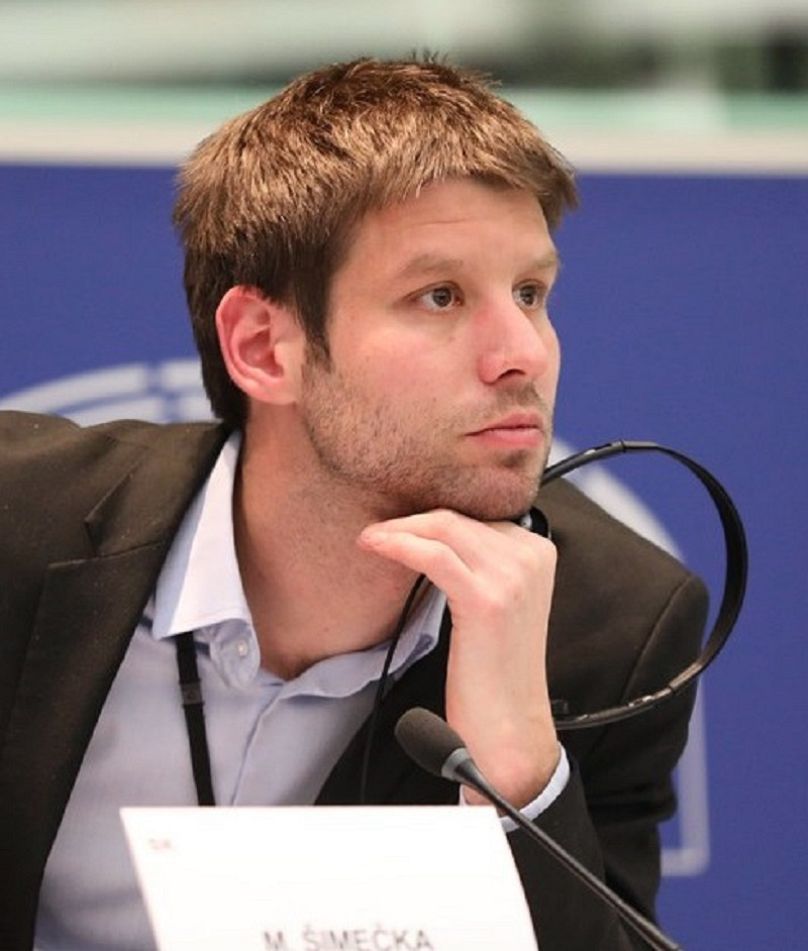If the EU wants to survive as a meaningful organisation delivering for all of its citizens, it will have to step up its response to the ongoing rule of law crisis.
In the midst of the coronavirus outbreak, and the unprecedented threat to European societies and economies, the rule of law crises in Hungary, Malta and most notably Poland, are all too easy to forget.
 ADVERTISEMENT
ADVERTISEMENT
 ADVERTISEMENT
ADVERTISEMENT
Even before the onset of the pandemic earlier this year, news of illiberal policy moves in Central Europe struggled to captivate the imagination of Brussels politicos. After all, the ruling Law and Justice (PiS) party in Poland has been blatantly dismantling checks and balances and seizing control of all branches of the judicial system for years, even if the recent adoption and enforcement of the so-called “Muzzle Law” represents a high watermark. Hungary’s Viktor Orbán, for his part, has a seemingly bottomless bag of soft authoritarian measures ready to propose and implement at any time.
Once the acute phase of the pandemic subsides, there will be even less appetite to address democratic deconstruction in EU member states. This, however, is short-sighted and will come back to haunt the Union.
Possibly more than any other branch of power, national courts have always been vital in ensuring that legal commitments made in Brussels actually have a practical effect on the ground. In the absence of a strong central government or federal police force, national courts are in most cases the only institutions accessible to private parties that can ensure that EU law is applied, even where political will to do so is lacking. A case referral mechanism involving the European Court of Justice safeguards the coherence of this highly decentralised enforcement system.
During 50 blissful years of European integration, the assumption that national courts needed to be independent from executive power was largely implicit. It was a matter of course that courts were independent, the separation of powers being a fundamental and necessary pillar of liberal democracy. It was on this implicit basis that concrete cooperation mechanisms such as the European Arrest Warrant, as well as EU commitments more generally, could credibly be made.
Events of the last 10 years have challenged the implicit assumption that all member states share a common bedrock of values according on which their institutions are built. Hungary and Poland have not been shy about bulldozing the independence of state institutions. Populists elsewhere dream of following their example.
Now that the unspoken consensus underpinning the functioning of the EU has been extinguished, the EU needs to stand up for the values it wants to represent. What was for a long time implicit - a shared commitment to democracy, the rule of law and fundamental human rights - needs to now be made explicit for the EU to survive. In the long run, the EU needs to revise its treaties to robustly condition membership on respect for its basic values, including by a range of credible sanctions if necessary. In the short run, we need a regular mechanism for assessing the rule of law situation in each member state with political follow-up at both the EU and national level.
10 days ago, we witnessed a tangible result of European complacency over the rule of law - and perhaps a glimpse of a grim future. A regional court in Karlsruhe, Germany refused the extradition of a Polish national on the grounds that a fair trial in Poland could not be guaranteed. The introduction of the “Muzzle Law,” which seeks to discipline judges who question the Polish government’s judicial reforms, was cited as a particular reason for considering the Polish justice system to be seriously deficient. An Irish judge had already expressed concern about the rule of law in Poland two years ago in another European Arrest Warrant case.
Rather than fearing the exit of further member state from the EU, we should be wary of a creeping decentralised disintegration and gradual erosion of trust affecting all levels of European cooperation. National judiciaries are essential in guaranteeing citizens’ rights derived from EU law. They ensure that the law operates in practice rather than just remains on paper. Without judicial independence, citizens and businesses may rightly fear for their EU rights. Access to the European Court of Justice (CJEU) through the preliminary ruling procedure would be conditional on the referring court’s independence.
The Commission, in its role as the guardian of the EU treaties, has increasingly relied on domestic litigation to safeguard the effectiveness of EU law in member states instead of direct infringement actions before the CJEU. Curtailing judicial independence would foreclose this crucial enforcement avenue.
The implementation of EU laws is challenging in its own right. It is a complete non-starter if the governments of member state control national judiciaries. If the EU wants to survive as a meaningful organisation delivering for all of its citizens, it will have to step up its response to the ongoing rule of law crisis.
Michal Šimečka is Vice-President of Renew Europe and the European Parliament’s Rapporteur for an EU Mechanism on Democracy, the Rule of Law and Fundamental Rights.
____________
Are you a recognised expert in your field? At Euronews, we believe all views matter. Contact us at view@euronews.com to send pitches or submissions and be part of the conversation.











